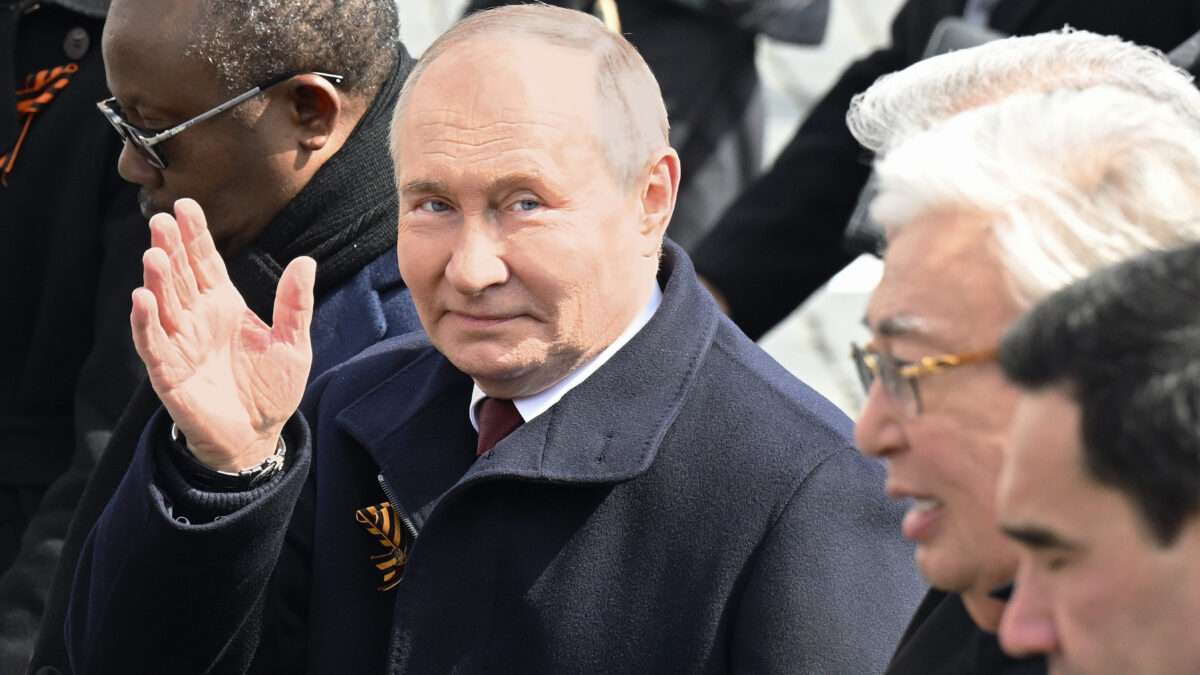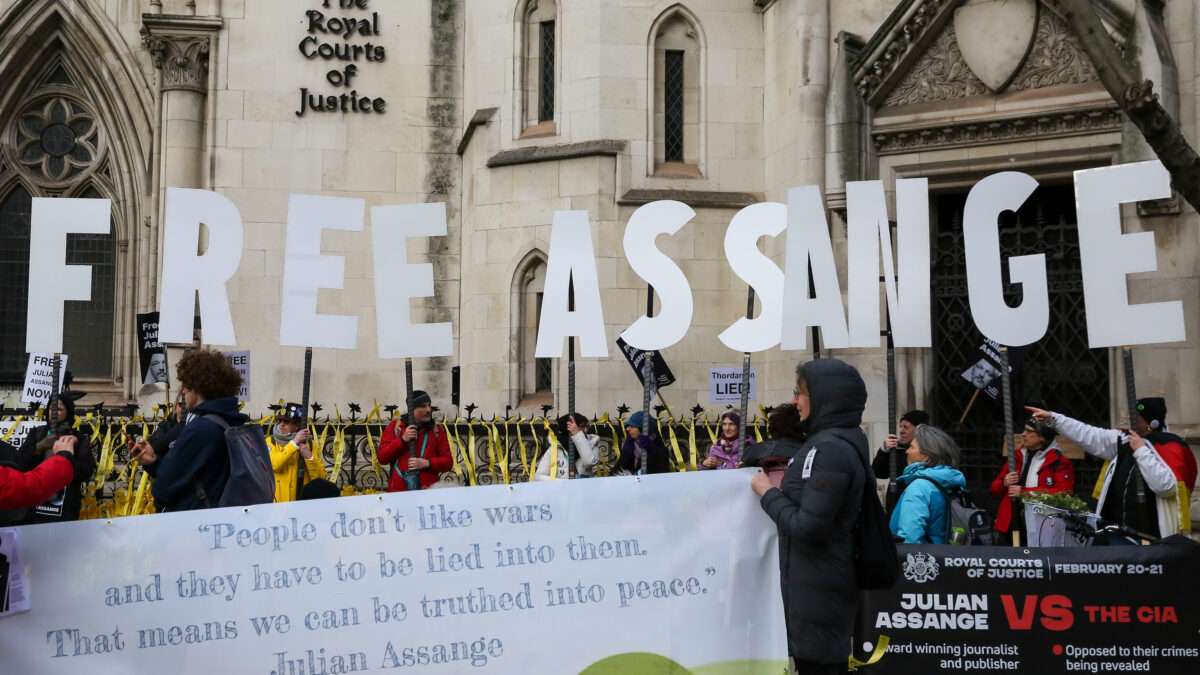World War War III May Already Have Started—in the Shadows

Britain's signals intelligence spy chief raised eyebrows this week with warnings that Russia is coordinating both cyberattacks and physical acts of sabotage against the West. There's evidence to back her claims—and the West may be returning the favor. Coming soon after FBI Director Christopher Wray warned that China is targeting American infrastructure, it looks like the world is not only fracturing once again, but that the hostile blocs are engaged in covert warfare.
Rumors of War
"We are increasingly concerned about growing links between the Russian intelligence services and proxy groups to conduct cyberattacks as well as suspected physical surveillance and sabotage operations," Government Communications Headquarters (GCHQ) Director Anne Keast-Butler told an audience at the United Kingdom government-sponsored CyberUK 2024 conference. "Before, Russia simply created the right environments for these groups to operate, but now they are nurturing and inspiring these non-state cyber actors in some cases seemingly coordinating physical attacks against the West."
Keast-Butler, whose agency is comparable to the U.S. National Security Agency (NSA), also called out China, Iran, and North Korea as cybersecurity dangers. But naming Russian officials as being behind "physical attacks" raises the stakes. Sadly, her claims are well-founded.
Sabotage, Espionage, and Other Mischief
"A 20-year-old British man has been charged with masterminding an arson plot against a Ukrainian-linked target in London for the benefit of the Russian state," CBS News reported last month. That wasn't an isolated incident.
"In April alone a clutch of alleged pro-Russian saboteurs were detained across the continent," The Economist noted May 12 in describing what it called a "shadow war" between East and West. "Germany arrested two German-Russian dual nationals on suspicion of plotting attacks on American military facilities and other targets on behalf of the GRU, Russia's military intelligence agency. Poland arrested a man who was preparing to pass the GRU information on Rzeszow airport, the most important hub for military aid to Ukraine. Britain charged several men over an earlier arson attack in March on a Ukrainian-owned logistics firm in London whose Spanish depot was also targeted."
The GCHQ chief's warnings coupled with reality on the ground are alarming in themselves. Worse, they come after FBI Director Christopher Wray issued similar cautions in April about China.
"The PRC [People's Republic of China] has made it clear that it considers every sector that makes our society run as fair game in its bid to dominate on the world stage, and that its plan is to land low blows against civilian infrastructure to try to induce panic and break America's will to resist," Wray told the Vanderbilt Summit on Modern Conflict and Emerging Threats in Nashville, Tennessee.
Wray clarified that, by "infrastructure," he meant "everything from water treatment facilities and energy grids to transportation and information technology."
If that doesn't make you want to check that your pantry is stocked and that the water filter and generator are in working order, nothing will.
A Game Both Sides Can Play
Of course, in war of any sort, the implication is that both sides are involved in conflict. Western intelligence officials are loud in their warnings about foreign threats, but less open regarding just what their own operatives might be doing in Russia, China, and elsewhere. Still, there's evidence that this is hardly a one-sided war, shadowy though it may be.
In June 2022, The New York Times reported that Ukraine's defensive efforts relied heavily on "a stealthy network of commandos and spies rushing to provide weapons, intelligence and training." In addition to Americans, the story noted, "commandos from other NATO countries, including Britain, France, Canada and Lithuania, also have been working inside Ukraine."
American journalist and combat veteran Jack Murphy goes further, claiming the CIA, working through an allied spy service "is responsible for many of the unexplained explosions and other mishaps that have befallen the Russian military industrial complex." The targets include "railway bridges, fuel depots and power plants," he adds.
And if you wonder who blew up Nord Stream 1 and 2, well, so do a lot of people. Russia was initially accused, but it didn't make a lot of sense for the country's forces to destroy pipelines that generated revenue and fed western dependence on Russian natural gas. Since then, Denmark and Sweden have closed inconclusive investigations, journalist Seymour Hersh blamed American officials, and a report by Der Spiegel and The Washington Post placed responsibility on a rogue Ukrainian military officer.
The Wider War Is Here
Taken all together, the warnings from Keast-Butler and Wray, as well as acts of sabotage and arrests of foreign agents suggest that fears of a wider war resulting from Russia's continuing invasion of Ukraine may miss the point; the war could already be here. People looking for tanks and troops are overlooking cyber intrusions, arson, bombings, and other low-level mayhem.
"Russia is definitely at war with the West," Oleksandr Danylyuk of the Royal United Services Institute, a British defense and security think tank, told NBC News earlier this week.
Russian officials seem to embrace that understanding, with Kremlin spokesman Dmitry Peskov commenting in March that the invasion of Ukraine, originally referred to by the euphemism "special military operation," is now more serious. "It has become a war for us as the collective West more and more directly increases its level of involvement in the conflict," he said.
Fortunately, a shadow war of the sort around us is less destructive than open military conflict, especially when the hostilities involve nuclear-armed powers. It's far better that spies hack the email accounts of government officials, as happened in the case of a Russian cyberattack on Germany's ruling Social Democrats, than that cities burn. But civilians still must live with the consequences of combatants attempting to do each other harm—particularly when the harm is to infrastructure on which regular people rely.
So, welcome to the world of global shadow war. Try to not become collateral damage.
The post World War War III May Already Have Started—in the Shadows appeared first on Reason.com.



